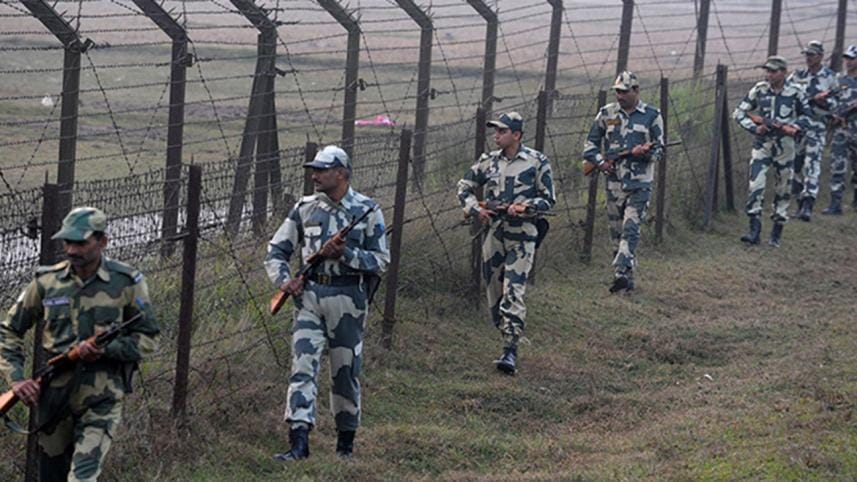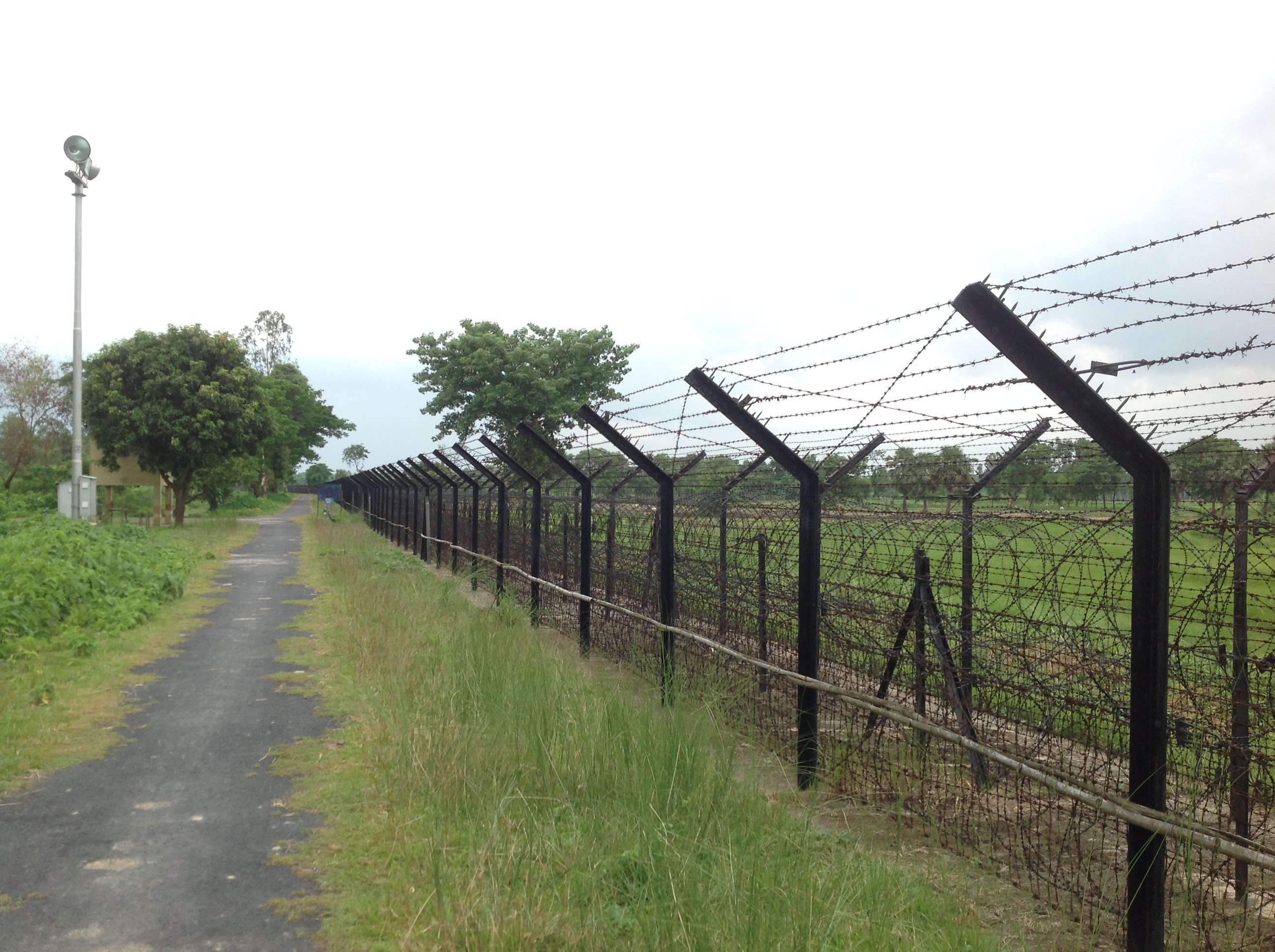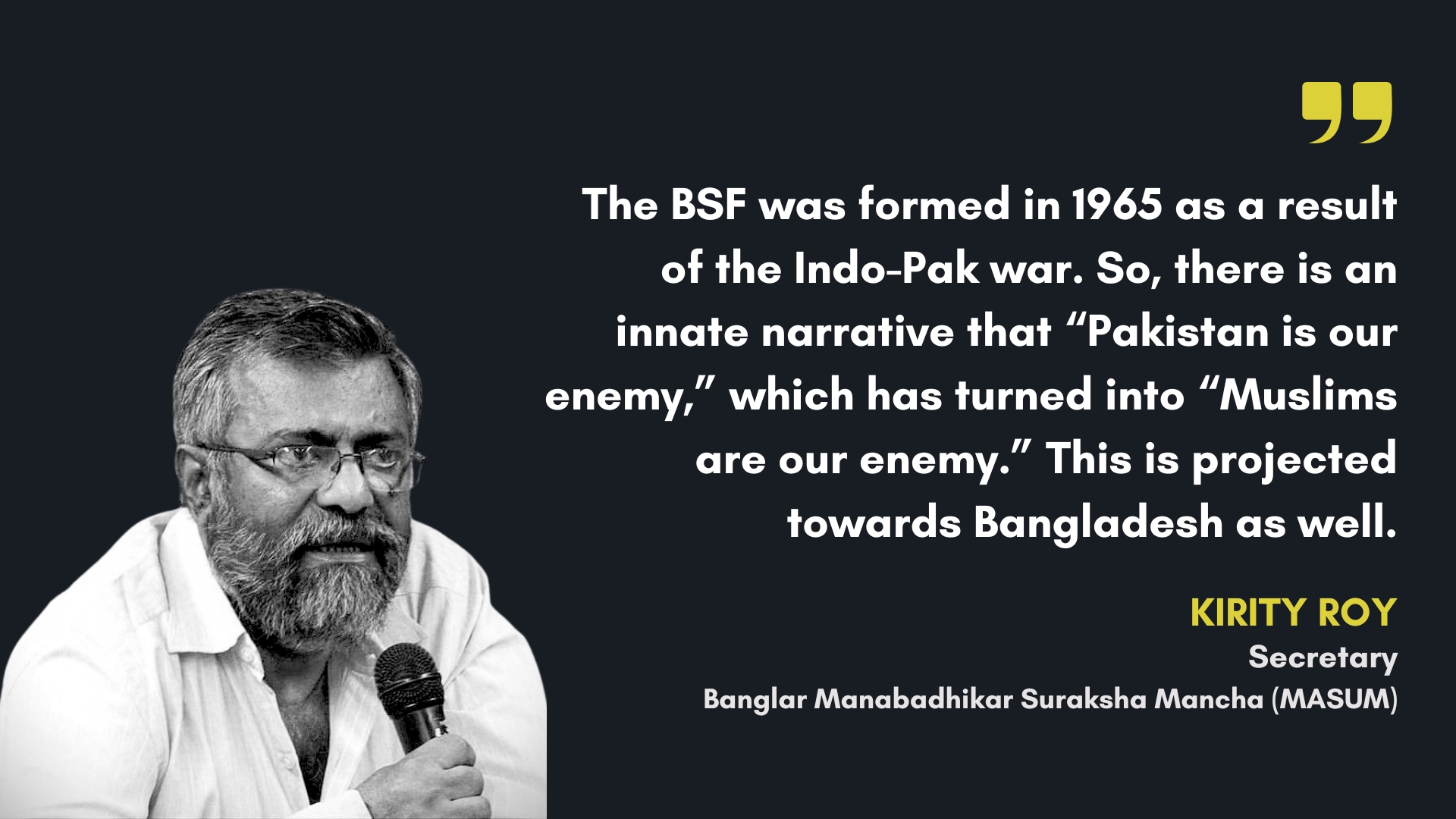From Felani Khatun to Swarna Das: When will border killings by BSF end?

After Bangladeshi teenager Felani Khatun was gunned down by the Indian Border Security Force (BSF) in January 7, 2011, her mother Jahanara Begum had said in anger and frustration that, no one should lose her child, not even a bird should die at the hands of the BSF on the border. Yet, the killing of people by BSF on the Bangladesh-India border has not stopped.
The latest victim is Swarna Das, a 16-year-old school girl, killed by BSF at the Bangladesh-India border in Kulaura upazila of Moulvibazar last Sunday night. According to The Daily Star, Swarna along with her mother, assisted by two local agents, had attempted to cross the Lalarchak border with India. A couple from Chattogram accompanied them. When they approached the Indian border's barbed wire fence around 9:00pm, BSF personnel opened fire, killing Swarna on the spot, while the Chattogram couple sustained injuries.
Fifteen-year-old Felani Khatun was returning from India to Bangladesh with her father through the Anantapur border in Kurigram 13 years ago, while Swarna Das was going with her mother through the Lalarchak border in Moulvibazar to meet her immigrant brother in Tripura, India.
After Felani's killing by BSF, her body was hanging on the barbed wire fence for a long time and the image sparked outrage and protests at home and abroad. However, the BSF member who killed Felani was not punished, rather the BSF court acquitted him. The case was then brought to the Supreme Court of India, but it has not been heard yet.
Not just the teenagers Felani or Swarna, the Indian BSF is regularly killing Bangladeshis by shooting or torturing them across the border. Incidents of shootings or killings on the border of two hostile neighbouring countries are not rare. But the case of one country regularly shooting and killing citizens of the other country on their common border, when the countries are officially "friends," is rare.
According to human rights organisation Ain O Salish Kendra (ASK), 31 Bangladeshis were killed by BSF along the border in 2023, of whom 28 were shot dead. The number of Bangladeshi citizens killed by BSF in 2021 and 2022 were 18 and 23, respectively, and at least 522 Bangladeshis were killed between 2009 and 2020.
Regarding border killings, the BSF gives the excuse of firing in "self-defence" under "compulsion." In July 2022, the then Director General of India's Border Security Force (BSF) Pankaj Kumar Singh tried to justify Bangladeshi nationals killed on the border—terming them as "criminals." He claimed that all those killed were involved in various crimes, including drug trade and cattle smuggling as if BSF can stamp any foreign citizen as a criminal without any trial and then kill the alleged criminal at will.
First, cattle smuggling, like all other commodity smuggling, is a joint venture involving both Indian and Bangladeshi sellers and buyers. The rules of a market economy dictate that any commercial transaction, whether legal or illegal, can only take place if both parties benefit. In this regard, Kirity Roy, secretary of a West Bengal based rights organisation Banglar Manabadhikar Suraksha Mancha (MASUM) has rightly said that, "The story which is told to justify border killing is also not true. They say cattle are smuggled across the border and those smugglers are killed. It seems as if cows are born at the border and smuggled into Bangladesh. In fact, these cows are brought from Haryana and Punjab, crossing 2,000 to 2,500 kilometres distance within India. The cattle are brought on foot, by truck or by train. Is it believable that no one sees these! Nobody stops these because everyone gets his share. The real issue here is corruption, BSF kills when there is a dispute with the distribution of the spoils."
Secondly, neither the Indian Penal Code nor any international law allows shooting or killing a smuggler at will. Anyone crossing the border illegally can be arrested and prosecuted. India ignores all internationally accepted border control protocols and bilateral border management instruments like the Joint India-Bangladesh Guidelines for border authorities of the two countries, 1975 and the India-Bangladesh Coordinated Border Management Plan 2011. For example, to avoid the possibility of "unpleasant incidents," according to article 8(i) of the 1975 guideline, if nationals of one country ingress the working boundary and enter illegally and commit or attempt to commit an offence, the border security forces would be at liberty to take appropriate action in the exercise of the "right to private defence" preferably without resorting to fire. And according to article 8(m), whenever any cattle are alleged to have been lifted across the border, a report will be lodged with the opposite Post Commander to whom the details, such as the tracks of the cattle and the criminals involved etc. will be handed over. The border Post Commander concerned will acknowledge receipt of the report and then inform the nearest police station in his own country, who will make all efforts to recover the cattle and apprehend the criminals.
Does the BSF follow this simple procedure to prevent smuggling while avoiding "unpleasant incidents?" Evidence suggests otherwise. According to an investigation report by Human Rights Watch titled, "'Trigger Happy': Excessive Use of Force by Indian Troops at the Bangladesh Border," all the victims of BSF killings were either unarmed or armed with only sickles, sticks, and knives, which suggest that in shooting victims, the BSF are likely to have used excessive force. In several cases, the victims were shot in the back, suggesting that they were running away. In others, injuries indicate the person was shot at close range, with witnesses often alleging that the person was tortured and killed in BSF custody. None of the cases investigated by Human Rights Watch showed that BSF had recovered lethal weapons or explosives that could pose an imminent threat of death or serious injury that might justify killings in self-defence.
Thirdly, even BSF's excuses for self-defence are not acceptable. How could unarmed teenage girls like Felani or Swarna be a threat to the armed BSF? And there are many such examples.
Despite India's claim to be friendly, the country's behaviour in border management is that of an aggressive and dominating neighbour. Interestingly, the Indian BSF does not behave the same way on the borders with hostile neighbours like China or Pakistan. There may be a state of war, isolated shootings and killings on those borders, but one-sided border killings like the ones on the Bangladesh-India border are absent there.
No attempt was made by the past government to take a firm stand against the regular killings of Bangladeshi citizens by the Indian BSF on the border, to demand fair trial and investigation of every incident, to call the Indian ambassador and demand accountability, and to turn the matter into a bilateral and international issue.
We expect the situation to change in the interim government's tenure, which should send a strong message to India, protesting BSF's killing of teenager Swarna Das and demanding justice.
Kallol Mustafa is an engineer and writer who focuses on power, energy, environment and development economics. He can be reached at kallol_mustafa@yahoo.com.
Views expressed in this article are the author's own.
Follow The Daily Star Opinion on Facebook for the latest opinions, commentaries and analyses by experts and professionals. To contribute your article or letter to The Daily Star Opinion, see our guidelines for submission.




 For all latest news, follow The Daily Star's Google News channel.
For all latest news, follow The Daily Star's Google News channel. 

Comments